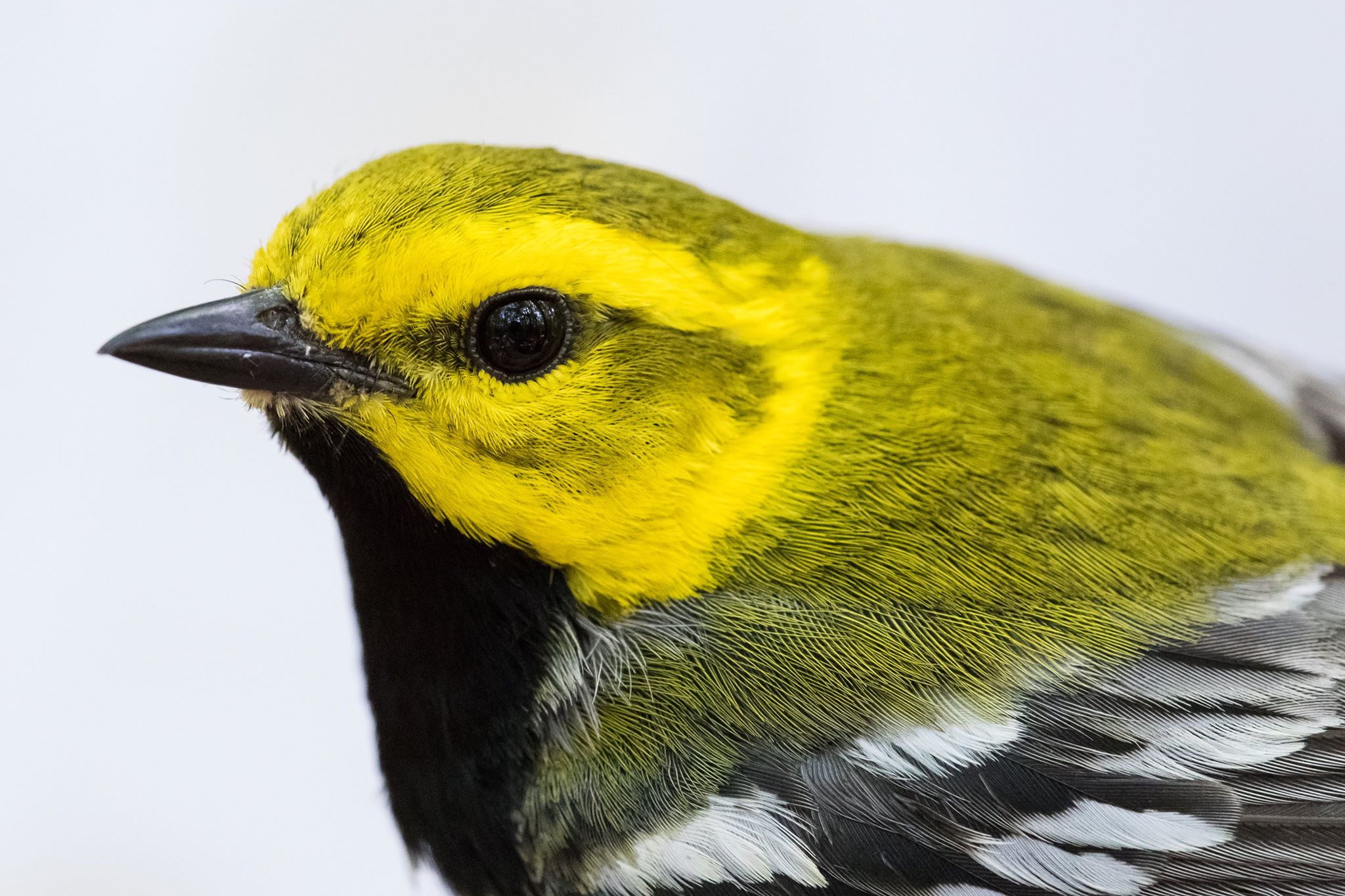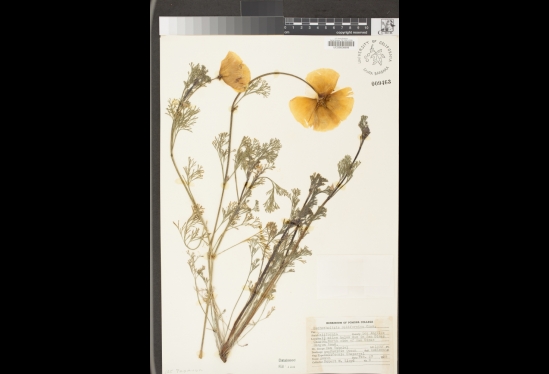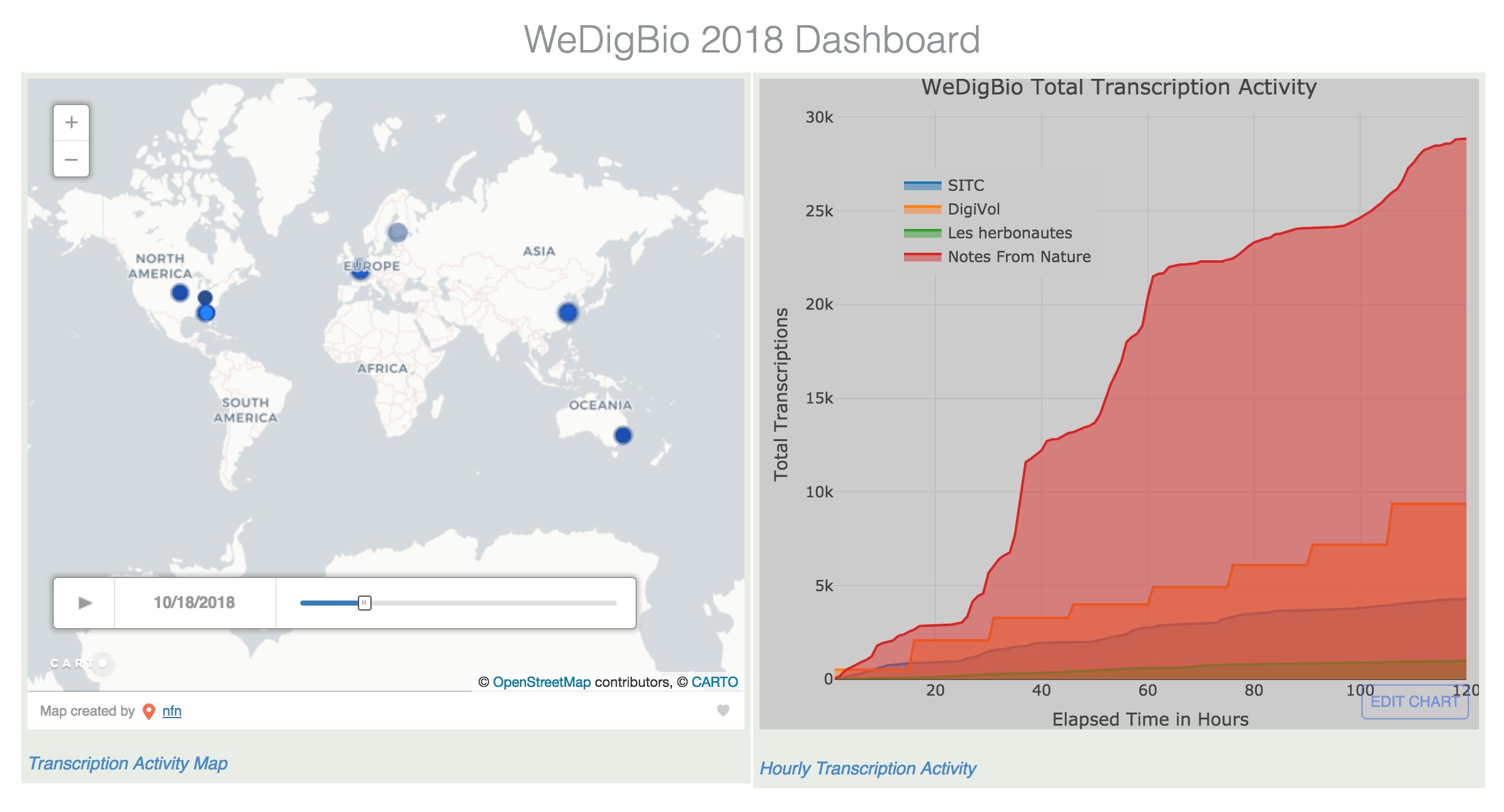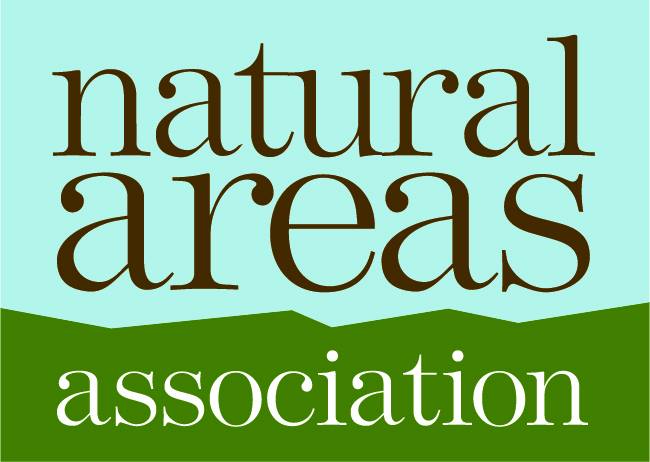RSS Content Feed
November 2018 Biodiversity Spotlight
Wood-warblers, Parulidae

Image Credit: Joe Poston
Research Spotlight: November 2018
Augustus Fendler Herbarium Specimens: A Locality Improvement Project
A component of the Southern Rocky Mountain Flora Database Project
Lance J. Gloss and Timothy J. S. Whitfeld
Brown U. Herbarium (BRU)
Dec 2017 - May 2018
Introduction
Job Posting: Systems Administrator Programmer III at iDigBio
Job Description:
The majority of the activities are as a systems programmer and technology implementer for the National Resource for Digitization of Biological Collections (iDigBio) project. Design, implement and support complex ETL mappings to migrate large data volumes from heterogeneous source systems into a central NoSQL data store. Develop and use tools to perform data analytics, data manipulation, and reporting according to data consumer needs, and participate in the design of new or changing data mappings and workflows, evolving the iDigBio data model as data standards are updated and data growth need arises. Produce technical specification and documentation to effectively communicate with data providers and consumers.
Develop software for data-related cloud middleware and web portals. The incumbent will design, implement, and maintain storage, infrastructure, platform, and software clouds including software and hardware selection. Integrate external cloud and distributed data resources with resources developed as part of the projects. Collect and report performance and quality metrics to insure resources are meeting project goals. Create documentation and software packages to make work usable by other institutions. Train collaborators and end users on the cloud and software resources created. Liaise with developers and users of biological collection management systems providing data to iDigBio to gain an understanding of data requirements and functionality, to address data transformation issues, to develop tools that facilitate data quality improvement, and to enable bi-directional data flows.
Coordinate ingestion processes across national and international partner organizations. Interpret iDigBio project needs, stakeholder requests, and PI directives to drive prioritization and triage of tasks and issues. Interface directly with data providers when technical complexity exceeds the capabilities of mobilization staff. Collaborate with national and international organizations as needed to improve data quality and data sharing standards. Collaborate with Partner Projects and new potential partners by way of physical and virtual meetings. Manage the Data Ingestion and Mobilization meeting.
Assist in maintaining existing computer, networking, and software infrastructure in ACIS laboratory. Integrate infrastructure developed as part of the project into the overall resource offerings of the ACIS laboratory. Document best practices and develop technical support materials for ACIS hardware and software.
Deadline:
11:55 p.m. (ET) 16 November 2018
To learn more and apply:
http://explore.jobs.ufl.edu/cw/en-us/job/509223/system-adminprogrammer-iii
Two postdocs in biodiversity informatics at Arizona State
The Biodiversity Knowledge Integration Center (BioKIC) at Arizona State University (ASU) invites applications for two postdoctoral research scholar positions in biodiversity informatics. The positions are part of a new Biodiversity Data Science Initiative launched at ASU and led by Beckett Sterner and Nico Franz. The initiative will develop a nextgeneration solution to overcome the performance limits of taxonomic names as fundamental categories for grouping all forms of data about living things into scientifically meaningful units. Prevalent existing solutions bundle data by names alone, without accounting for changes in their scientific meanings, which causes incorrect data packaging and decision-making. Taxonomic intelligence provides the mapping between names and concepts that is necessary to resolve names accurately into meanings despite changing relationships across time and experts. The initiative will focus on building an innovative web platform that leverages theoretical advancements and prototype software for taxonomic concept alignment, with the goal to establish a scalable taxonomic intelligence service that will carry value for scientific audiences, science publishers, government agencies, and environmental consulting firms. The platform will accelerate the growth of high-quality, reproducible biological data by driving the adoption of taxonomic intelligence metadata in scientific datasets and journals.
The position ads are available here:
Position 1: https://sols.asu.edu/sites/default/files/job_12575.pdf
Position 2: https://sols.asu.edu/sites/default/files/job_12643.pdf
Exploratory e-mail inquiries are strongly encouraged. Interested applicants should send a one-page research statement, clearly indicating their qualifications and motivation to join the project, Curriculum Vitae, and contact information for three references to nmfranz@asu.edu and beckett.sterner@asu.edu. The review of applications is rolling and will continue until a suitable candidate has been found. The start date is flexible, with a preference for January 1st, 2019.
Assistant Professor of Biological Sciences - Plant Biology at Mississippi State University
Assistant Professor Position
Department of Biological Sciences
Mississippi State University
The Department of Biological Sciences at Mississippi State University invites applicants for a 9-month, tenure-track position in Plant Biology as Assistant Professor and Curator of the Mississippi State University Herbarium.
We seek candidates with demonstrated curatorial skills who can develop an extramurally-funded research program. Applications are welcomed from candidates employing traditional or modern approaches to address fundamental questions in any area of plant biology including, but not limited to, plant taxonomy, systematics, ecology, evolution, biogeography, or conservation biology.
Responsibilities will include development and maintenance of an extramurally-funded research program, oversight and curation of a vascular plant collection (including curation of the digital collection and use of the collection for education and outreach activities), and contribution to undergraduate and graduate teaching.
Located on the MSU-Starkville Campus, the Department of Biological Sciences is housed in recently-renovated Harned Hall, which provides modern facilities for cutting-edge research. The department offers degrees at the B.S. (Biological Sciences, Medical Technology, and Microbiology), M.S. (Biological Sciences thesis and non-thesis) and Ph.D. (Biological Sciences) levels. For more information please visit: http://www.biology.msstate.edu.
The Mississippi State University Herbarium (MISSA in Index Herbariorum) was founded in 1885 with approximately 6,000 specimens. The herbarium houses many noteworthy collections from southeastern botanists of the 19th & 20th centuries, including S. M. Tracy, R. B. Channell, James D. Ray, Jr., and Sydney McDaniel. Today, MISSA houses more than 30,000 vascular plant specimens, with a strong focus on the southeastern United States, especially the state of Mississippi. The collection is currently undergoing digitization through the NSF-funded Magnolia grandiFLORA project, and data from this effort are being made available through a separate NSF-funded collaboration with the South East Regional Network of Expertise and Collections.
Mississippi State University is a comprehensive land-grant university that serves over 22,000 students. Faculty in the Department of Biological Sciences have diverse research interests in bioinformatics, cell biology, developmental biology, ecology, evolutionary biology, genetics, microbiology, and systematics, and are funded by the NIH, NSF and DOJ, as well as numerous private foundations. Campus research infrastructure includes supercomputing resources, and proteomics and genomics instrumentation at the Institute for Genomics, Biocomputing & Biotechnology, computing resources and statistical expertise at the Center for Computational Sciences, microscopy and imaging through the Institute for Imaging and Analytical Technologies and geospatial technology through the Geosystems Research Institute. Faculty in the Department of Biological Sciences have active collaborations with MSU faculty in the Departments of Anthropology, Chemistry, Computer Science, Geosciences, Biochemistry, Molecular Biology, Plant Pathology & Entomology, Biological Engineering, and the College of Veterinary Medicine.
Job Posting: Yale University - Cultural Heritage, Developer & Tech Lead
Yale University houses preeminent cultural and natural heritage collections (Beinecke Rare Book and Manuscript Library, Yale Center for British Art, Yale University Art Gallery, Yale University Library and Yale Peabody Museum of Natural History) in pursuit of its mission to improve the world today and for future generations through outstanding research and scholarship, education, preservation, and practice. Yale’s collecting organizations complement physical collections with born-digital materials and through transformative digital systems to improve and expand access, streamline academic work, incorporate resources worldwide from other institutions, and provide a platform for developing new ways to conduct research, teach, learn and publish.
Information Technology Services (ITS) seeks a Senior Software Engineer to be a hands-on developer who will provide technical leadership to other software engineers in developing innovative web applications that support shared practices across Yale’s collecting organizations as well as the global cultural and natural heritage community. This person keeps current with existing and emerging cultural and natural heritage technologies, standards, and best practices; and, participates in higher-education cultural and natural heritage conferences, projects, and standards groups to stay apprised of industry direction and opportunities for collaboration.
Through close collaboration with the library, galleries and museums, this person provides vision, planning, guidance, consultation, mentoring and coordination of cultural and natural heritage multi-departmental software development projects. This person ensures that applications are designed and deployed to provide ample performance to process large volumes of information in a variety of formats including but not limited to text, images, audio, video, metadata, structured data, and unstructured data managed by Yale’s libraries, galleries, and museums.
The person will participate in the implementation of programming standards and methodologies to improve overall efficiency in developing, deploying and operating reliable software applications. Senior Software Engineer actively engages in all aspects of the software application lifecycle from user input through design, code development, quality assurance, operations, continuous improvement, and decommissioning.
Find out more about the position here: http://bit.ly/52447BR.
UC Santa Barbara researchers part of statewide project to digitize flowering plant species, facilitating climate change research

by Jeff Mitchell
Most would agree that flowers play an important and colorful role in making the world around us a more beautiful place.
To close observers, however, flowers also play a key “canary in the coal mine” role: The timing of their blooms informs us of the ecological health of the planet and, specifically, about the growing intensity of global climate change.






